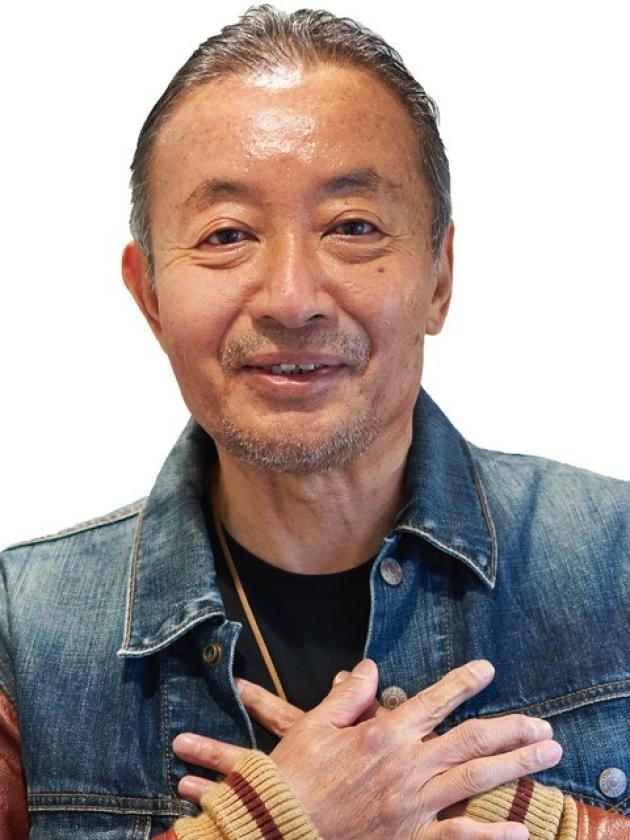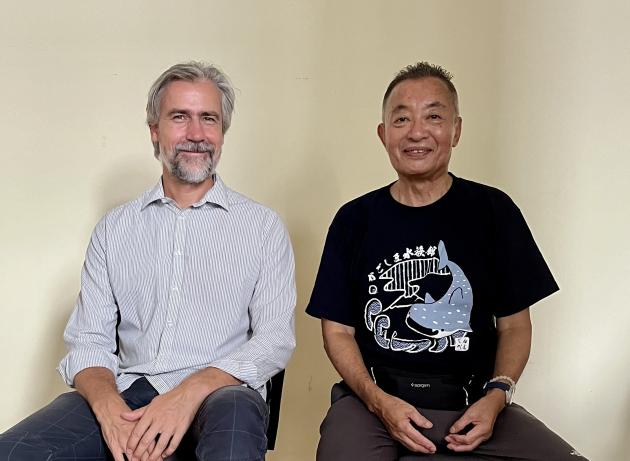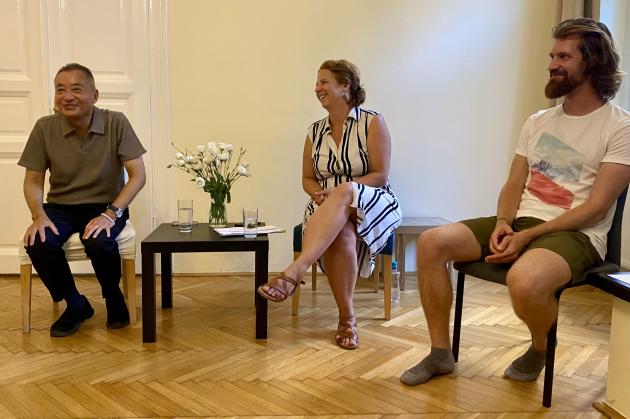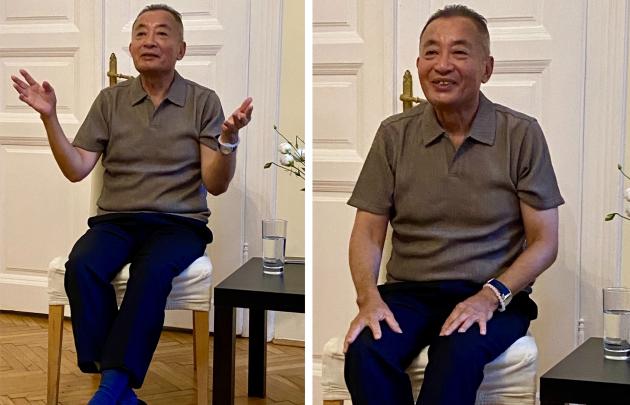It Might Come to You: The Power of Words and Flow in Focusing
Through Akira Ikemi’s eyes, Gendlin’s presence is still felt – bridging East and West in the art of Focusing.
By Krisztina Svéd
In a world where words often fall short in expressing our inner experiences, Focusing, developed by Eugene Gendlin, offers a bridge between what we feel and what we can say. This process of inner exploration helps individuals to articulate emotions, thoughts, and bodily sensations. Gendlin’s legacy continues through scholars such as Akira Ikemi.
Akira is a highly respected Focusing practitioner and psychologist with deep roots in both Focusing and Japanese psychology. He studied under Gendlin at the University of Chicago and has dedicated decades to practicing and teaching Focusing. A longstanding professor at Kansai University in Japan, Akira specializes in Focusing-Oriented Therapy and the Experiencing Model, which he developed to explain human experience and the therapeutic process. As the founder of the Japan Focusing Association, he continues to explore the intersection of mind, body, and language through Focusing.
In early September 2024, about 20 people gathered for an open event in Budapest, Hungary, organized by the Hungarian Institute for Focusing and Focusing-Oriented Psychotherapy (HIFFOP). The event, facilitated by Gerda Zimmermann, a Focusing Trainer, featured an interview-style conversation with Akira, who answered both pre-submitted and spontaneous questions. The warm atmosphere welcomed anyone interested in Focusing.
The two-day workshop that followed the meet-up was also organized by HIFFOP, with special thanks to Árpád Kántor, a Focusing Coordinator and the head of the organization, who has been in contact with Akira for years to arrange this long-awaited event for the Hungarian Focusing community.
When Akira was asked about his connection to Focusing, he took a moment to reflect before replying: "Focusing has been in my backbone – always and throughout the years.” His words reminded us that Focusing is not just a technique, but a way of being; a relationship with oneself and the world.
After the meet-up, I felt a surge of excitement, like a child receiving a perfectly-timed gift. This is what Focusing is about: the joy of discovering something profound, even when it wasn’t sought.
Writing this article has been like walking through a sunlit forest, with Akira as my guide. Each step revealed hidden beauty – details that, with his guidance, took on a deeper meaning. Having learned directly from Eugene Gendlin, the father of Focusing, Akira has blended these teachings with his own Eastern experiences to offer unique insights into this approach.
Focusing: A Deeper Understanding
When asked to define Focusing, Akira explained that it is often misunderstood as a method that is done consciously. He differentiated between two approaches: Focusing Alpha and Focusing Beta.
Focusing Alpha is the ability to pause and allow something deeper to emerge naturally – a practice so embedded in one’s being that it may not even be recognized as Focusing. Akira shared that this unforced, organic unfolding is where the true magic lies. At that moment, Akira turned to the audience and asked, "You have an experience of me, but can you express it in words? What kind of person am I?" He pointed out that while experiences are not inherently in words, transforming them into language gives us a new understanding.
Focusing Beta, on the other hand, refers to the structured practice that Gendlin developed to teach Focusing systematically. While this structured method is crucial for learning, Akira emphasized that Focusing Beta is only one side of the coin. Gendlin’s vision of true Focusing often happens spontaneously, without conscious effort, in the natural flow of life.
The Power of Words in Focusing
One of the most touching moments of the conversation came when Akira shared an anecdote about his time with Gendlin. Despite their different linguistic backgrounds – Gendlin spoke German and English, while Akira spoke Japanese and English – English and their shared practice of Focusing bridged any language gaps.
During a Focusing session, Gendlin once used a German word Akira didn’t know. After trying to explain it, Gendlin finally said, “Just say it back.” Despite not understanding the meaning, Akira trusted the process and repeated the word. "I didn’t know what it meant," Akira later reflected, "but to him, it meant something." This moment illustrates an essential aspect of Focusing: it’s not always about intellectually understanding each word, but about the emotional and experiential weight they carry. In Focusing, presence and connection are often more important than comprehending the Focuser’s language word for word.
Eastern vs. Western Approaches to Focusing
Akira also shared reflections on the differences between Eastern and Western attitudes toward Focusing. In the Eastern tradition, particularly in meditation, there is an emphasis on ‘no mind, no self.’ Thoughts arise and pass, but they are not pursued. Akira explained that in this type of presence, there is no “I” driving the experience, allowing the self to dissolve into something as simple as breathing.
In contrast, the Western approach often focuses on the self, with statements like “I am Focusing. I have a problem.” This mindset fixates on personal concerns, reinforcing attachment to identity and the problem itself. According to Akira, it is this attachment that keeps us stuck.
In Zen practice, the attitude is more fluid. Instead of striving for a specific outcome – like enlightenment – one adopts a receptive approach, allowing things to unfold naturally. Rather than saying, “I want enlightenment,” one might say, “It might come to you.”
Focusing as a Relationship
Throughout the meet-up and the workshop, Akira emphasized that Focusing is not just a method; it’s a relationship – a way of relating to ourselves, others, and the world. Focusing is not like taking medicine to fix a problem; it’s a form of self-reflection that helps us understand what’s happening in our lives and how it makes us feel.
Akira shared a personal anecdote about his golden retriever, describing her as “the best listener.” Speaking to his dog, he would find feelings emerging, creating a space for Focusing. "It was the relationship that allowed me to do Focusing," Akira said, underscoring that Focusing is about the connections we create that allow thoughts and feelings to surface and be understood.
The Art of Tea
When asked what Eugene Gendlin was like as a person, Akira described him as "very friendly, very charming." After a thoughtful pause, he added, "Yes, that word does fit." Gendlin was known for being meticulous, not only in philosophy but in everyday tasks, like making tea. He loved Japanese tea and knew the exact water temperature for each type.
Akira found this amusing and said with a laugh, "I’m Japanese, and I just take a teabag, pour hot water over it, and it’s ready." This small contrast in their personalities highlighted both the balance between them and the respect they shared.
Closing Reflection
As the workshop came to a close, Akira's words lingered like echoes of something deeper than the room could contain. He reminded us that Focusing is not merely a technique – it’s a way of being, a practice that invites us to let thoughts and feelings emerge naturally, without forcing them. Focusing, Akira explained, is alive, creative, and transformative, giving new meaning to how we experience life.
"It might come to you," Akira said with a quiet smile, echoing the wisdom of the Zen monks and Gendlin’s teachings. His words settled gently and as we left, something important had indeed come to us – quietly, like a gift, arriving just when we were ready to receive it.
When I asked Akira how he sees himself, his answer was humble yet profound. "I am a farmer," he said, likening himself to someone who tends to an expansive farm full of apple trees, grapevines, and animals. With care and patience, he takes care of everything in his garden, allowing each to flourish in its own time.
In that moment, it became clear that Akira's gift is not only his wisdom but his ability to nurture the potential within each of us – patiently waiting for it to blossom, as all things do, in their own season.
All photos with the exception of the top image were taken in Budapest, on the 5th and 6th of September, 2024 during the Meet-up and workshop with Akira.
Krisztina Svéd is a Certified Focusing Professional, Focusing Trainer and Focusing-Oriented Therapist. She integrates Focusing into her work as a mental health counselor and trainer, helping individuals explore their inner resources and develop personal growth. Krisztina is also a PhD researcher at Corvinus University of Budapest in Hungary, specializing in organizational wellbeing.





